- Learning time
- 30 minutes
- First play time
- 90 minutes
Municipium
Designed by: Reiner Knizia
During the time of the Roman Empire, towns strove to gain the status of a Municipium – a kind of outpost of Rome, where the denizens of the town gained Roman citizenship and other advantages. In the game, you and the other players represent the families in one such town, jostling for position in the various buildings to maximize your ties with Rome.
Your aim is to collect five medallions, which represent approval from the citizenry. How you get these medallions is by collecting followers from different citizens in the town – Scholars, Merchants, Soldiers, and Priests. The board is populated with them at the start of the game, and more will come along during play, along with some gold bars which are essentially wild cards.
During the game, you’ll be moving your family members around the board to try and gain influence in the various buildings. Having the most influence is beneficial in two instances – first when an Event card is played (more of those in a moment) and secondly when the Praefect visits – he’s like the Roman Ambassador, strolling from place to place and pursued by a bunch of hangers-on and sycophants (that’s you, the players). When he arrives at a building the player with the most family members there gets to take a gold bar, and the second-placed player gets to take a citizen.
When you get enough citizens, you can cash them in for a medallion, and the first player to get five instantly wins the game.
At the end of each turn there’s also an event – these are decided by the active player either playing one of their own, powerful cards, or flipping one from the event deck. The latter represents a risk, but timing of the former can be crucial to your chances of victory. Event cards may also trigger the power of a building – each building has it’s own special power that helps the player with most influence there: how you use these can also be key in the game.
Another aspect of the game is the buildings are slowly filling up with citizens – this also happens through the cards. If you have the most influence when any building gains three citizens, you take two citizens of your choice, and the second-placed player picks up the third citizen, and these of course all go towards your medallion objective.
It’s a game that needs a little bedding-in for new players as, like a lot of this designer’s games, it does err towards the abstract. But if you like a lot of player interaction and clever mechanics, it’s a little gem.
The guru's verdict
-
Take That!
Take That!
High. Everyone is trying get the most influence (ie most family members) in the buildings, so although there's no fighting there is a lot of bumping and pushing going on, metaphorically speaking.
-
Fidget Factor!
Fidget Factor!
Really does depend on the players, but high for a first play when you're figuring things out. The more you play it the quicker it will speed by, and familiarity gets it down under an hour.
-
Brain Burn!
Brain Burn!
Once you're familiar with the rules, low.
-
Again Again!
Again Again!
Randomness is ensured by both cards and the 'citizen bag', and also by the nuances of the family members moving around the board, where one move can create a butterfly effect on the rest of the game.

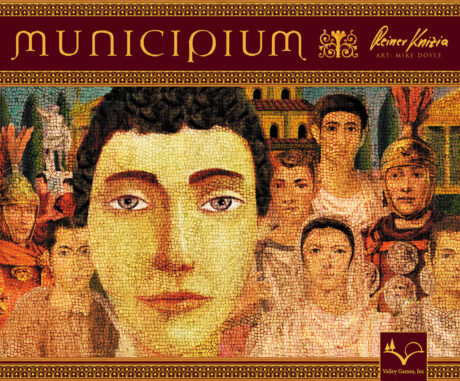
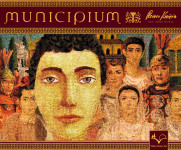


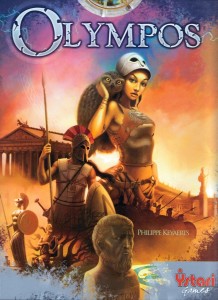
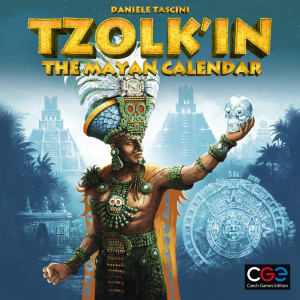
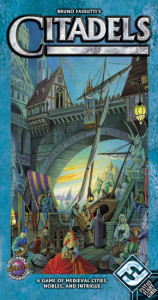
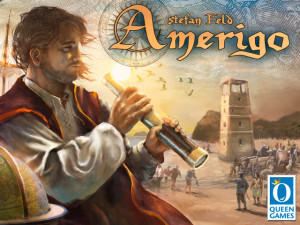
Sam says
If it sounds complicated, that's because it is. At first. If you have some natural strategists in the family it might come easy to them - even youngsters - but the rewards of Municipium will really come on a second play, when you've gotten your head around the possibilities and knock-on effects of everything. It's a really swingy game where you can go from a powerful position on the board to a pathetic one (or the reverse) in one fell swoop. In fact that's what is quite delicious about the game - each move is potentially very powerful; but then so are all the other players!